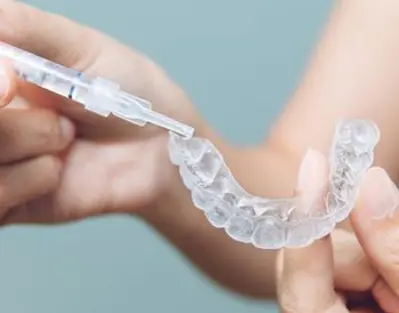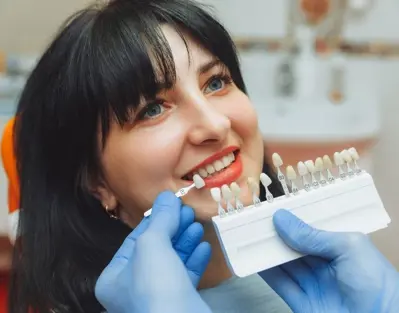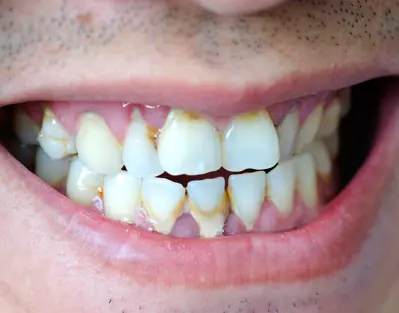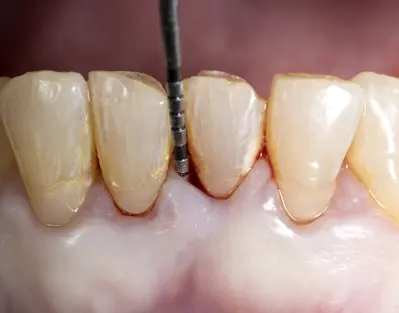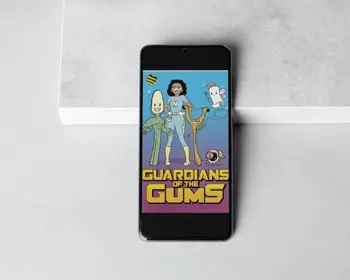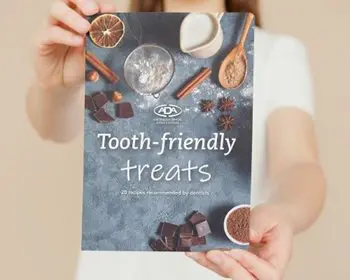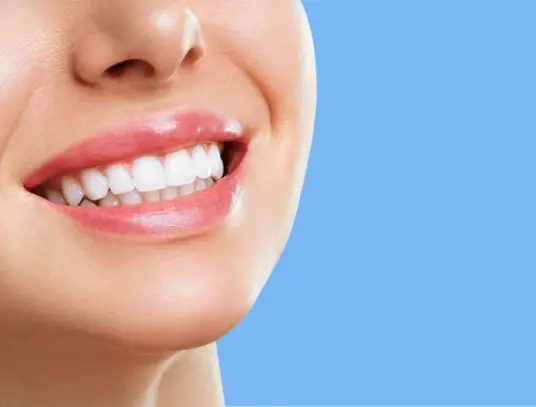
Australian's 11 oral health messages
Tips for choosing toothpaste
How to brush with an electric toothbrush
How to brush with a manual toothbrush
Explore Our Resources
These school lessons integrate oral health and nutrition into subjects of the National Curriculum. Lessons include:
- Understanding the Nutrition Information Panel → Math for years 5 & 6
- Sugar, Acids, and Tooth Decay → Science for years 9 & 10
- Guardians of the Gums → Early Learning to year 2
Find out more about these lessons.
Watch our Pro-tip videos. These are short, animated videos that provide step-by-step tips to help you care for your oral health.
The Smiling Signs Auslan Resources are a collection of videos in Auslan and easy English.
View our free to download and print factsheets and posters.

Accessing Dental Care
4 Episodes Available
Teeth whitening (part 1)
Teeth whitening (part 2)
Gum disease - gingivitis
Gum disease - periodontitis
Shop
Frequently Asked Questions
Dry mouth is when there is not enough saliva in the mouth. It is a symptom because it is something that is felt. It can be caused by many things. Causes can include medications, medical conditions, smoking, or drinking lots of tea and coffee.
There are many things you can do to care for a dry mouth. Some suggestions include drinking lots of water, avoiding or drinking less tea or coffee, chewing sugar-free gum, and avoiding sugary drinks, alcohol, and smoking. Tooth decay can develop faster in a dry mouth. It is important to see a dentist regularly if you have a dry mouth.
Dental erosion is the loss of tooth structure that is dissolved from contact with acids in the mouth. Dental erosion may be caused by acidic foods and drinks, reflux, or vomiting. Once the teeth are worn away by acids, the missing tooth structure can only be replaced by a dentist. It is important to know what is causing the dental erosion and stop the tooth damage from getting worse.
Tooth decay is the destruction of natural tooth structure by bacteria in the mouth. Eating and drinking sugary items feed these bacteria so that they make acid. The acid attacks the surface of the teeth.
Tooth decay can be stopped if it is found when it is just starting to develop. If the decay is not stopped, a dentist may need to fix the damaged tooth with a filling. The filling replaces the area of soft tooth decay that is cut out of the tooth.
Periodontitis is a severe type of gum disease. It can lead to tooth loss. When gingivitis is not treated and stopped, it can turn into periodontitis. Periodontitis affects the gums and bones that hold the teeth in place. Common signs include the gums pulling away from the teeth and teeth becoming loose. Periodontitis is not able to be reversed. But the disease can be stopped from getting worse. Treatment by a dentist or specialist periodontist is needed to stop the disease. Keeping good dental hygiene at home is also very important.
Gingivitis is the most mild type of gum disease. It is also the most common type. When plaque is not removed from the teeth by brushing and flossing, it can build up on the teeth. This can make the gums inflamed. Signs of gingivitis can include puffy and shiny gums. The gums might bleed when brushing and flossing. Gingivitis can be reversed with professional dental cleaning and/or good oral care at home.
Plaque is a sticky layer of bacteria that forms on your teeth. When plaque is not cleaned away, the minerals in saliva may turn it hard. This is called calculus. Calculus must be removed by a professional dental clean.
The bacteria in plaque can cause tooth decay and gum disease.
You can remove plaque from your teeth by brushing and flossing every day. It is important to use a toothbrush with soft bristles and to brush gently but thoroughly. Cleaning between your teeth with floss at least once a day works to remove plaque and food particles from the spaces your brush can not reach.
If you have dental pain, it is best to see a dentist as soon as possible. Your pain may be caused by tooth decay, gum disease, or another dental disease. If it is not treated, more serious problems could develop, such as an abscess.
No, you do not need a referral to see a dentist in Australia.
You do need a referral from your general dentist to see some dental specialists.
Dentists in Australia offer a wide range of treatments. They can provide preventive care, fillings, crowns, veneers, root canal treatments, tooth extractions and teeth whitening treatment. Some dentists complete more training to provide other treatments such as braces.
It is recommended that you see a dentist regularly. This is different for everybody, and your dentist can tell you how often to return. For most Australians, it is best if they can attend at least once a year for a check-up. However, if you have any concerns about your dental health, it is best to see a dentist as soon as possible.
There are a number of ways to find a dentist in Australia. You can use the ADA’s Find a Dentist search tool, or you can ask your friends or family for a recommendation.
Cosmetic dental procedures improve the appearance of your teeth and smile. Common procedures include teeth whitening, veneers, and crowns. Be sure to talk to your dentist about the risks and benefits of any procedure before having it done.
Braces are used to treat crooked or crowded teeth and teeth that do not bite together correctly. Braces may be needed to change the position of teeth due to past habits such as thumb sucking. If you're considering braces, be sure to talk to your dentist or a specialist orthodontist. Do not try to fix your teeth using products bought online.
Dentures need to be cleaned every day, just like natural teeth. Use a toothbrush with soft bristles and liquid hand soap to brush them in the morning and at night. Soak dentures in a denture cleaning solution every day also. Take them out at night when sleeping and store them in a safe location. They may be kept dry or soaked in water. Be sure to see your dentist regularly to have your mouth and dentures checked.
Some medical conditions and medications can affect your teeth and mouth. It is important to tell your dentist about all your medical conditions and medications to help them to care for you safely and well. Some medications can cause side effects in the mouth, such as dry mouth, which can increase the risk of tooth decay developing. Be sure to also tell your dentist about any vitamins or supplements bought from supermarkets or pharmacies.
Changes to your body during pregnancy can cause changes in your mouth. Vomiting and reflux may damage your teeth. Hormone changes can make the gums more sensitive to bacteria in the mouth. Women planning a pregnancy are recommended to have a dental check-up during this time. It is also important to keep seeing your dentist during pregnancy to keep good care for your teeth and mouth.
Diabetes can increase the risk of gum disease and other infections in the mouth. It's important to regularly see your dentist and maintain good oral hygiene if you have diabetes.
If you have pain, swelling, changes in the way your teeth bite together or any other type of mouth discomfort, you should see a dentist as soon as possible. These may be signs of an infection, tooth decay, gum disease, oral cancer, or another dental problem.
Some signs from inside the mouth that may suggest poor dental health:
- Bad breath
- Bleeding gums
- Newly developed white spots on teeth
- Red or swollen gums
- Pain
Dental problems can be linked to other general health issues. If you have these or any other signs, you should see a dentist as soon as possible. Good oral hygiene habits can help keep your teeth and gums healthy.
Australia sets the bar high for quality and safety in dental care. Australia has some of the best infection control requirements and standards in the world. These standards are critical in dental clinics.
When Australians travel overseas to have dental treatments, a common reason is cost. Seeking dental treatment overseas may appear to save you money at the time, but this may only be in the short term as there is the risk that things can go wrong and cost you much more in the long term.
However, if you're thinking of travelling overseas for dental treatment, it's important to be aware of the risks involved. Australian dental clinics operate under very strict infection control protocols. Not all countries have the same requirements. As well, only quality dental materials approved by the Therapeutic Good Administration (TGA) are used in Australia. Depending on the overseas location, the dentist may not be working with the same quality materials that are used in Australia.
As well, trying to squeeze several complex dental procedures into a holiday means you may be risking complications. Having your treatment at home in Australia means you can easily access follow-up care.
Dental health is important for many reasons. A healthy mouth helps you to eat, speak and smile comfortably. Good dental health is linked to good whole of body health. It can help to reduce the risk of infections in other parts of your body.
Oral health describes the overall health of your mouth. This includes your teeth, gums, and all of the soft tissues of the mouth, such as the tongue and throat. Diseases in your mouth can affect the health of your body, so it’s important to take care of it.
Poor oral hygiene can lead to poor oral health, including tooth decay and gum disease. These problems can be painful and expensive to treat. Good oral hygiene can help you to avoid these problems and keep your teeth and smile looking their best.
There are some things you can do to keep good oral health:
- Brush your teeth twice every day with a toothbrush that has soft bristles. Use a toothpaste that contains fluoride and brush all of the surfaces of your teeth all the way to down your gums.
- Clean between your teeth once per day, for example, using floss.
- Eat a healthy, balanced diet and limit your sugar intake. The average adult is recommended to have six or less teaspoons (24 grams) of added sugar every day to help to decrease the risk of tooth decay.
- Regularly visit your dentist for a check-up. Your dentist will tell you how often you should return.
Some health services are available for free in Australia because they are covered by Medicare. Dental health services are not covered by Medicare. Patients must pay for the cost of their dental treatment.
Public dental clinics are provided by the states and territories for eligible children and adults to receive free or low-cost dental care. Some states and territories make these services completely free. Others charge a small fee, called a co-payment. To be eligible, adults must have a Health Care Card or a Centrelink Pensioner Concession Card. Other criteria to access this dental care may depend on which state or territory you live in.
To find out more information about the public dental clinics near you, and if you are eligible for these clinics, go to Government Dental Care.
No, dental care is not free in Australia. But it’s not all bad news! While it is not always possible to reduce the cost of dental care, assistance is available to help eligible patients pay the cost.
Most people access dental treatment at private dental clinics in Australia. The patient must pay for the cost of the treatment at these clinics. Health fund rebates may cover some or all of the cost of dental treatments. However, you must be paying the cost of the health fund to get this cover. Read more about private dental clinics.
There are government-funded dental health schemes that help eligible Australians to access dental care. If you have a pensioner concession or Centrelink health care or concession card, you may be able to seek dental care at a government dental clinic.
The Child Dental Benefits Schedule created by the government helps eligible children under 18 years to access dental care. Children can have procedures such as examinations, x-rays, cleaning, fissure sealants, fillings, root canal treatment, and tooth extractions. Hospital services, orthodontic (teeth straightening) and cosmetic dental work are not covered by the Child Dental Benefits Schedule.
Find out more about the Child Dental Benefits Schedule.
The cost of dental treatment in Australia varies depending on the type of treatment needed and the dentist you see. But health fund cover and government dental schemes can help Australians to access dental care.




